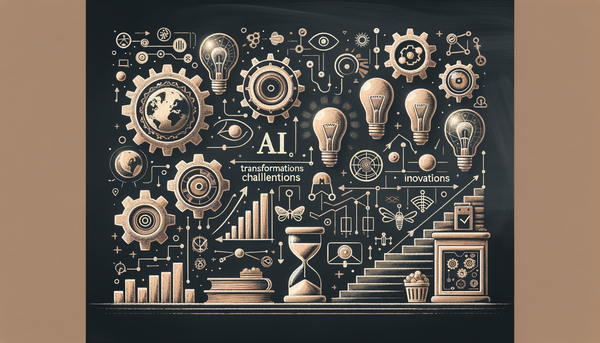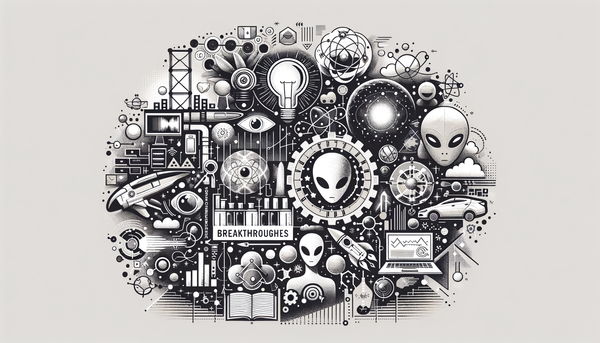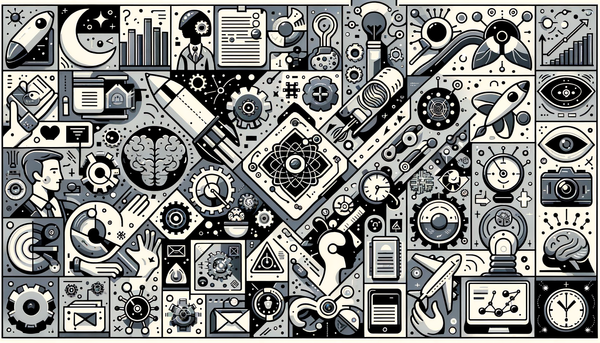AI’s Performance and Future: Challenges and Opportunities

In the rapidly evolving world of artificial intelligence, both opportunities and challenges define the landscape. AI faces criticism for declining quality, yet offers high-paying remote job opportunities. Initiatives like Nvidia’s sign language platform highlight AI's potential for inclusivity, while the Colorado AI Act seeks to ensure ethical integrity. Intricately woven into sectors like work, communication, and governance, AI’s future success lies in balancing innovation with responsibility.
The Dilemma of Degrading AI Quality
The advent of artificial intelligence heralded a seemingly boundless horizon of possibilities, but recent evaluations have revealed a disquieting decline in quality. Much like receiving a "D" grade on a report card, AI’s allure has been tarnished by bias, misinformation, and questions of reliability. A significant contributor to this degradation is the lack of depth within training data, leading to skewed outputs.
Critiques highlight that the relentless drive for speed has overshadowed quality, with corporations hastily integrating AI systems without sufficient regard for potential pitfalls. This has given rise to ethical quandaries and the urgent call for robust regulatory frameworks. It is imperative that we strike a balance between innovation and responsibility to ensure AI benefits society rather than exacerbate existing issues.
"Artificial intelligence is growing up fast, as are robots whose facial expressions can elicit empathy and make your mirror neurons quiver." — Diane Ackerman
This notion from Diane Ackerman echoes the complex dynamics AI presents as it matures, underscoring the necessity for careful, considerate development.
Lucrative AI Job Opportunities: A Glimpse into the Future of Work
In stark contrast to the prior grim outlook, AI also serves as a gateway to lucrative job opportunities, particularly within the remote work landscape. Many roles in AI now command salaries exceeding $100,000, offering flexibility and accessibility even to those without formal degrees. These positions range from AI engineers developing advanced models to AI ethics compliance managers, ensuring technology's alignment with societal values.
This burgeoning field beckons individuals across the spectrum, urging both novices and veterans to capitalize on these rewarding prospects. The convergence of high pay and workplace flexibility renders AI job opportunities irresistible, ensuring continuous inflow of talent into the sector.
Nvidia's Leap into Inclusivity: A Sign Language AI Platform
Pioneering efforts by Nvidia have introduced an AI platform aimed at simplifying the learning of sign language—a transformative step towards inclusivity. This initiative endeavors to bridge communication gaps by offering personalized learning experiences tailored to each user’s pace. Through interactive lessons and real-time feedback, individuals can master the nuances of sign language in a dynamic manner.
Nvidia’s drive for innovation promises a future where technology enhances interaction with the deaf and hard-of-hearing communities, showcasing AI’s profound capacity to bring about positive societal change. Such advancements underscore how AI can be leveraged to forge a more inclusive world.
"I imagine a world in which AI is going to make us work more productively, live longer, and have cleaner energy." — Fei-Fei Li
Fei-Fei Li’s vision aligns seamlessly with Nvidia's mission, painting a picture of a world where AI enhances our lives in diverse, meaningful ways.
The Human-in-the-Loop Approach: Uniting AI with Human Insight
While artificial intelligence has indeed begun to supercharge productivity, we are reminded again of AI’s limitations. The dream of fully autonomous AI remains distant, requiring human cognition to navigate complex, nuanced scenarios.
The human-in-the-loop methodology synergizes AI with human intuition and creativity, particularly crucial in sectors such as healthcare and finance. This collaboration ensures accountability, fostering confidence in AI-driven systems while retaining the indispensable human element.
Although algorithms can churn through data rapidly, humans offer the reasoning and empathetic perspective necessary for informed decision-making. This alliance propels innovation while safeguarding integrity, mapping a pathway to a dynamic, efficient work environment.
The Colorado AI Act: Paving the Way for Ethical AI Governance
Colorado's introduction of the Colorado AI Act marks a groundbreaking shift towards responsible AI governance. The Act sets noteworthy ethical standards, vital for ensuring that AI development is rooted in transparency and accountability.
The legislation mandates that AI systems mitigate bias, fostering a community trust through disclosure of underlying data and operational mechanics. The Act aims to preemptively address privacy and job displacement concerns, safeguarding societal interests while harnessing AI’s potential.
As other states watch closely, Colorado positions itself as a trailblazer in AI legislation, championing innovation underpinned by ethical consideration. Such forward-thinking regulation is crucial in heralding an age where AI operates with integrity and respect for human values.




